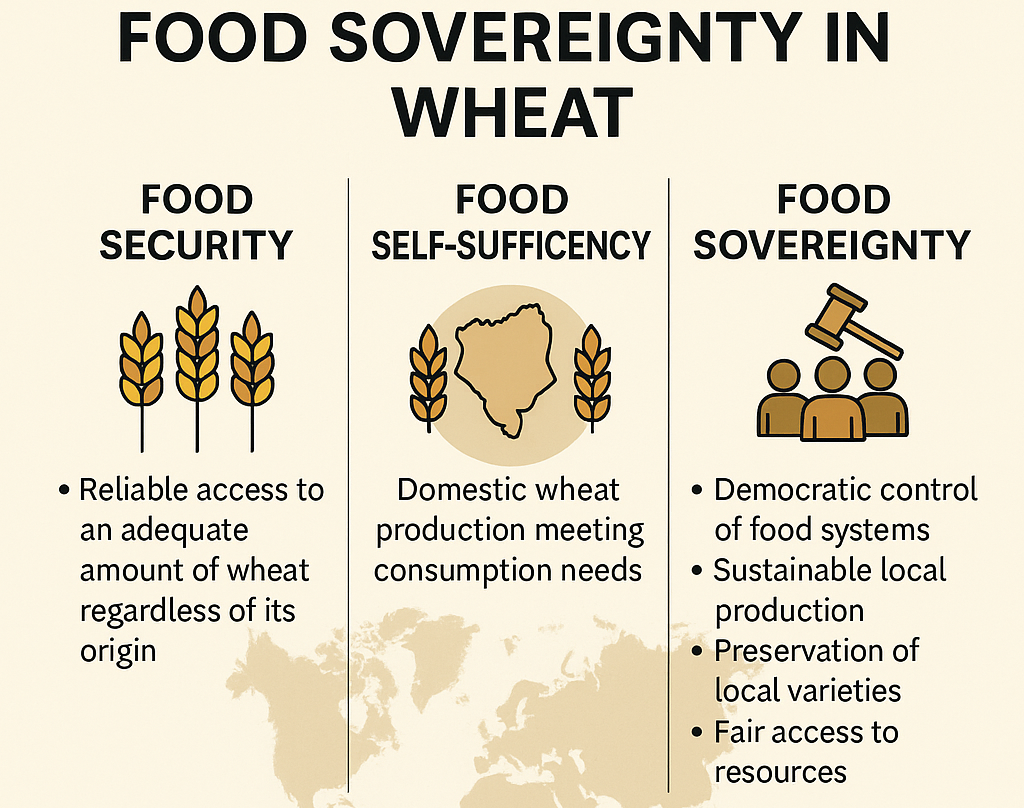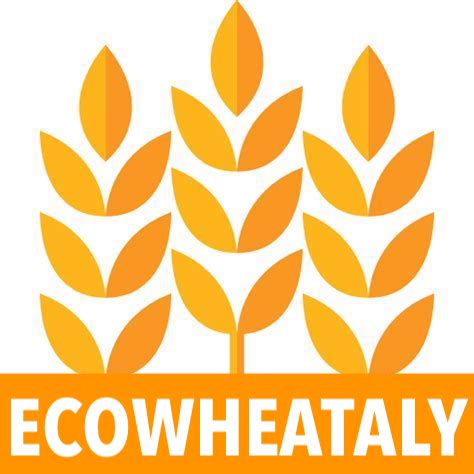The term food sovereignty is increasingly used in public discourse, often as a synonym for food self-sufficiency or agricultural protectionism. But in its original and scientifically grounded meaning, the concept is much broader and deeper—especially when it comes to strategic crops like wheat.
What is food sovereignty?
Food sovereignty was defined in 1996 by La Via Campesina as “the right of peoples to healthy and culturally appropriate food produced through ecologically sound and sustainable methods, and their right to define their own food and agriculture systems.” In the scientific sphere, the FAO and international research bodies recognize food sovereignty as a principle that goes beyond food availability: it includes democratic control, social justice, fair international trade, and the protection of agricultural biodiversity.
In the case of wheat—a staple crop that provides the primary caloric intake for many populations—food sovereignty is closely tied to critical issues such as import dependency, global trade concentration, and vulnerability to geopolitical and climate shocks.
The paradox of wheat-importing countries
Many countries in North Africa and the Middle East—such as Egypt, Tunisia, and Algeria—are heavily dependent on wheat imports, particularly from Russia and Ukraine. The 2022 war revealed just how fragile a food system can be when it relies on a handful of large exporters and highly exposed supply routes.
According to a 2022 IPES-Food report, excessive reliance on imported wheat undermines food resilience and reduces national political capacity to guarantee the right to food.
Sovereignty ≠ Autarky
Food sovereignty in the wheat sector doesn’t mean shutting down trade. It means regaining decision-making power over agricultural policies, promoting sustainable local production, investing in crop research, protecting traditional seeds, and empowering farmers.
Scientific literature is clear: increasing yields alone is not enough. Food systems must be diversified, infrastructure for local storage and processing improved, and fair access to land and water ensured.
The role of wheat biodiversity
A central aspect of food sovereignty is the ability to choose and preserve local crop varieties. Over recent decades, global wheat production has focused on a small number of high-yield cultivars, often vulnerable to climate stress.
International research centers like CIMMYT and ICARDA work to conserve and improve locally adapted wheat lines, which are crucial for enhancing food autonomy in areas affected by drought, salinity, or soil degradation.
Food sovereignty applied to wheat is not about closing borders but rather about building integrated food systems based on social justice, agroecological sustainability, and political self-determination. In an increasingly interconnected yet unstable world, it offers a guiding framework for transforming food systems into more equitable, resilient, and democratic models.
Sources:
- IPES-Food (2022), Another Perfect Storm? How the failure to reform food systems left us vulnerable to conflict and climate shocks.
Another Perfect Storm? – IPES-Food
- HLPE (High Level Panel of Experts on Food Security and Nutrition) – FAO (2019), Agroecological and other innovative approaches for sustainable agriculture and food systems that enhance food security and nutrition.
HLPE Report #14 – Agroecological and other innovative approaches for sustainable agriculture and food systems that enhance food security and nutrition
- CIMMYT (2021), Safeguarding Wheat Genetic Diversity to Enhance Global Food Security.
Tapping into ancient genetic diversity can revolutionize wheat breeding and safeguard global food security, Studies – Afro Agri Review Journal


